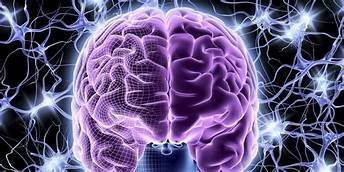
Biological Intelligence is undoubtedly a very interesting and exciting subject to study but then it is not something which gets recognized as one single subject. On one end of spectrum there is Psychiatry dealing with Human Mind; at the other end there is Genome mapping and cell biology… on Engineering side there is Artificial Intelligence and machine Learning seeking to oversimplify and emulate neural behaviour primarily for Information Technology applications.
Consider the following questions:
- What Bio-hardware is responsible for Intelligence?
- How does a cell know what to ingest and what to reject?
- How does it know how much lysozyme should be required to digest it? How does the cell navigate the ingested particle and enzyme bag to meet with shortest movement within cytoplasm?
- Where is the foetal growth blue print stored? How does it get executed with so much precision and repeatability?
- How do neurons know to where all its connections should extend to? How do the connections reach out till there?
- What is relation between human mind and brain?
Who do you think should be answering these?
Despite all painstaking and sincere research efforts how come we are still nowhere near answering above and many other questions?
Limitations of the Molecular Approach:
- Since Cell Biology, Membrane Transport Phenomena and Genetics have all largely been studied by the Biochemists; they have had a tendency to isolate and pinpoint the molecule responsible for each activity. There have even been efforts to isolate the molecule responsible for memory in human brain.
- Term “enzyme” has been stretched to label the unknown molecules after the functions they are supposed to be carrying out … so whatever is not clearly known and understood could be simply assigned / blamed it upon the corresponding enzyme. For example “t-RNA amino acyl synthetase” is supposed to be the group of molecules responsible for generating the proteins as per genetically coded amino acid sequences at site in cytoplasm through transfer RNA.
- Isolating molecule is like dismantling apart all hardware viz., nuts, bolts, springs, levers and then trying to figure out how they could work upon assembly, as a system. E.g., there could be springs (assembly of chain of multiple molecules) under tension performing a functionality; seeing a lose spring in isolation is unlikely to help understanding the functionality of mechanism.
Where is the subtler tool?
The mechanisms of higher order of Bio-Intelligence become increasingly complex hence they involve weaker forces of interaction. To study them without disrupting a subtler and weaker tool is required to probe them; which are simply unavailable.
Stronger forces correspond to simpler inorganic structure; forces / bonds transcend from ionic, covalent, coordinate, Bayer strained bonds right up to Hydrogen bonds, intermittent quasi bond and so on …. as the structures get higher order complexity.
Motivation Factor in Doctor’s Approach:
Other major professional group involved in study of this subject have been Doctors. But then Doctors are like “Maintenance Man” … while Designers ought to know how a machine works; Maintenance Man has only to know how machine could fail to work.
- While comprehending the exact working requires in depth knowledge and rigorous detailing; identifying failure mode is usually much simplistic.
- Doctors are logically interested only in something which is a problem, solution or at least of some diagnostic value; unfortunately study of what, how and why of Intelligence of Biological systems may not always carry a strong enough motivation and appeal for Medical Practitioners.
Engineers and Information Technology people have the training and are best placed to study Intelligence based on Logical requirements BUT they do not know Biology and those who know Biology would not know how to model intelligence and information encoding-decoding systems.
AVINASH KHARE